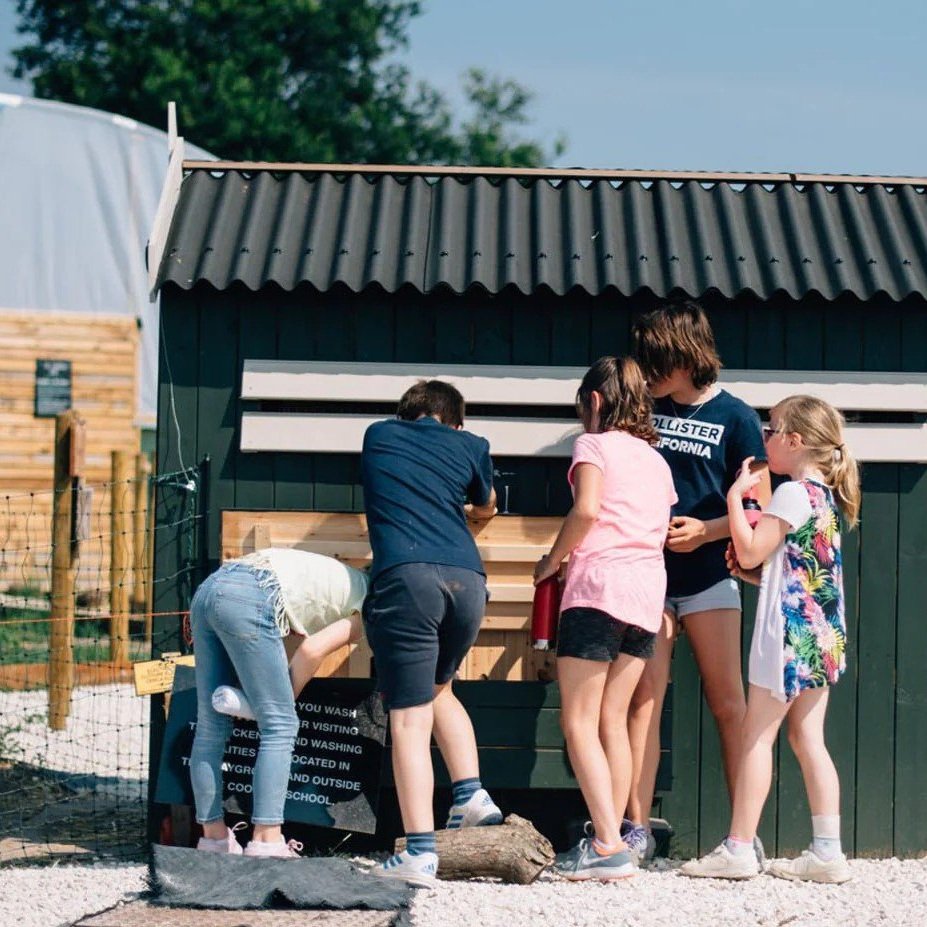
Sustainability AT STRATFORD
Water Usage
We fully utilise our 22,000-litre rainwater harvesting tank. With over 1000 square metres of roof area, we can harvest 1000 litres of water for every 1mm of rainfall. The average toilet uses 6 litres of water per flush – so our full tank provides enough water for more than 3600 flushes!
The toilets, kitchen garden, and raised beds are watered using this system.
All our staff are trained in the importance of water preservation when preparing food on site.
We are also members of 'RefillMyBottle', which enables visitors to Cobbs to refill their water bottles for free.
Promoting Sustainable Transport
We are based on the outskirts of Snitterfield which has fantastic public transport links with Stratford-upon-Avon.
We also actively promote and support many local walking and cycling clubs.
We are based on the famous 'Monarchs Way' so muddy boots are not a problem.
Many of our staff are local so walk or cycle to work.
Onsite Utilities
As most of our equipment is new, it holds at least an AAA rating, meaning we keep energy consumption to its minimum. We are conscious of lights being left on so most are operated by movement sensors to help stop wastage.
We predominantly use low-energy LED lighting.
We have 300 solar panels fitted on our building… with plans to get even more for our tractor shed.
Our panels were installed in 2020.
The Farm CO2 savings in year 1 = 28.8 tonnes
29% of the total onsite energy consumption is now provided by the solar PV array
The energy produced is the equivalent of having 80 kettles on for 8 hours per day (... that's ALOT of TEA!!)
Education
We are 100% committed to educating all about sustainability when dealing with food, wildlife, and the environment as a whole.
There is a fantastic children’s program run by Flourish here at The Farm. They focus on educating thousands of children a year about how they can do their bit to reduce food miles and nurture our immediate surroundings.
Understanding nature, and food production/creation, alongside developing care for the world around us will play a critical role for future generations.





